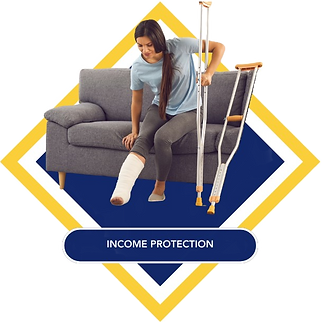Income Protection
What is Income Protection?
A policy that replaces your income where you are unable to work because of accident or illness.
Who needs Income Protection?
When we’re unable to work due to illness or an accident, you might assume that your employer will continue to give you some level of income. However, employees are usually moved onto Statutory Sick Pay within six months.
Very few employers support their staff for more than a year if they’re off sick from work. Check what your employer will provide for you if you’re off sick.
Depending on the level of savings you have, the loss of an income can soon leave you unable to pay essential household bills, such as mortgage/rent and utilities.
It can be particularly difficult if you’re self-employed and so have no sick pay to fall back on.
How much cover do you need?
This provides an income up to a maximum of 80% of your stated income if you are unable to work.
Cover should be sufficient to maintain your monthly household and mortgage costs.
How does Income Protection Cover work?
There are three main levels of cover, which pay out based on your situation:
-
Own occupation – you can’t do your own occupation. This is usually the most expensive, but it’s also more likely that you’ll make a successful claim.
-
Suited occupation – you can’t do your own job or a similar one that suits your qualifications and experience.
-
Any occupation – you’re too ill to do any kind of work. This is usually the cheapest, but there is a higher risk of it not paying out.
There’s often a pre-agreed waiting (‘deferred’) period before the payments start. The most common waiting periods are 4, 13, 26 weeks and a year. The longer you wait, the lower the monthly premiums. If you have enough savings to survive 13 weeks if you are unable to work, then you would opt for a 13-week deferred period.




